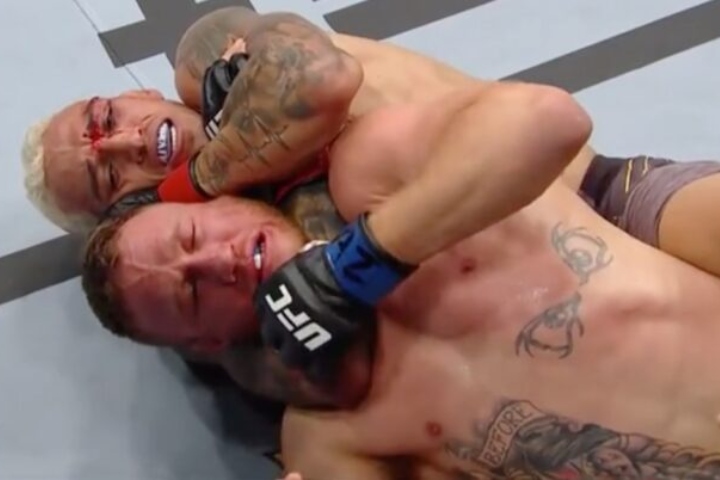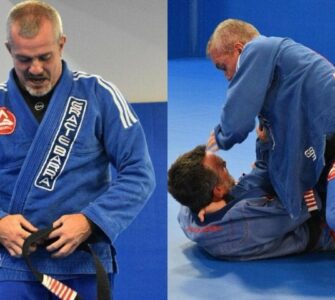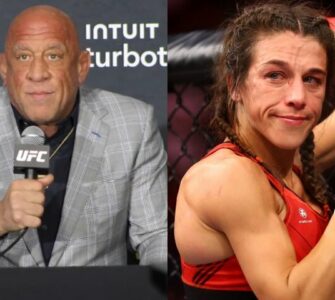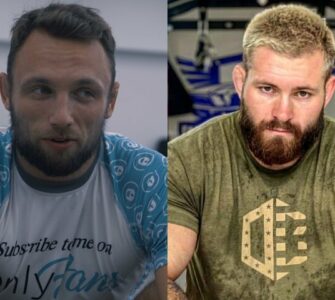Brazilian Jiu-Jitsu (BJJ) originated in the 1920s, evolving from martial arts like traditional Jujutsu and Judo. Initially developed as a method of self-defense, particularly for a smaller-sized fighter attempting to fend off a larger opponent—the sport has taken on a life of its own, turning into the foundation of modern mixed martial arts.
The UFC was based on competition across different styles of martial arts and between different weight classes of opponents in the early days, trying to determine which style was superior. This made BJJ a perfect fit for the fledgling sport: with an emphasis on grappling, technique (primarily weight distribution to gain a dominant position), joint locks and choke holds made it possible for fighters like lanky Royce Gracie to overcome larger opponents.
In doing so, BJJ became more of an offensive philosophy: you can’t win many matches if all you do is protect yourself.
BJJ’s focus on grappling on the ground, as opposed to traditional boxing where fighters must remain upright to continue play, created one of the defining aspects of the UFC as we know it.
While nearly every fighter in the UFC—especially at the highest levels of the sport—incorporates some aspects of BJJ into their game, some fighters have made it their calling card, particularly in the 1990s and early 2000s when fighters like Anderson Silva, Tony Ferguson and later Nate Diaz dominated the sport.
Here’s a look at two of the best BJJ fighters in the sport today, taking into consideration their records, dominance, and fighting style.
Charles Oliveira
When you think of modern BJJ fighters, Oliveira’s name is one of the first to come to mind. He’s 5’10 and weighs in around 155 these days, although he’s been even lankier at times, competing in the UFC’s featherweight division from 2012 to 2016.
Oliviera’s next match will come against Beneil Dariush at UFC 288: while the official lines haven’t dropped yet, stay tuned to see who BetMGM’s sportsbook thinks will prevail and take advantage by using this BetMGM bonus code.
His diminutive stature makes BJJ a perfect fit for his talents, and the influence of martial art is clear in his work. Of his 33 wins in UFC, 21 have been via submission. His use of the wide variety of holds that define BJJ makes him one of the best fighters in the sport, and a world champion to boot.
Oliveira was born in the tourist town of Guarujá, Brazil, a city that shows a clash between two worlds. On one hand, the oceanfront city is packed with affluent tourists from the city of São Paulo and elsewhere around the world; on the other hand, economic depression runs rampant, with many families like Oliveira’s living in favelas.
Oliveira began his life as an athlete playing soccer, but his sporting career nearly ended before it even began. When Oliveira was seven years old he came down with rheumatic fever, a disease that can affect the heart and kills roughly one out of every eight people who have it. Oliveira had difficulty moving around because of the condition and was diagnosed with a heart murmur when his parents took him to the doctor. The doctor also said that he could become paraplegic because of the disease, a prediction that his parents refused to accept. Even though Oliveira remained bedridden at times because of his illness, his parents made sure to get him up and moving when he was able, perhaps seeing athletics as a way to improve his overall health.
He later picked up BJJ after being introduced to the sport by a neighbor: although his family was poor, he was able to take classes through a social program.
Not only is Oliveira one of the greatest success stories in sports, overcoming a life-threatening illness to become a professional athlete. Simply making it to the pros would’ve been incredible, but Oliveira is one of the best in the sport as well, winning the UFC Lightweight Championship in 2021.
Brian Ortega
Ortega, like Oliveira, places a huge emphasis on holds: he’s a choke specialist and has parlayed that ability into a 15-3-1 record in his career. While he’s not quite as dominant as Oliveira at forcing submission (seven of his wins have come via tap-out), his mastery of one of BJJ’s defining traits makes him one of the best in the sport today, not to mention the fact that he competed for a featherweight title at UFC 231.
His reputation as a choke specialist shouldn’t come as a surprise, as he learned from some of the best to ever do it. He trained at the Gracie Jiu-Jitsu Academy: you can’t do much better on your resume than having a first-degree black belt from UFC’s first family.

















